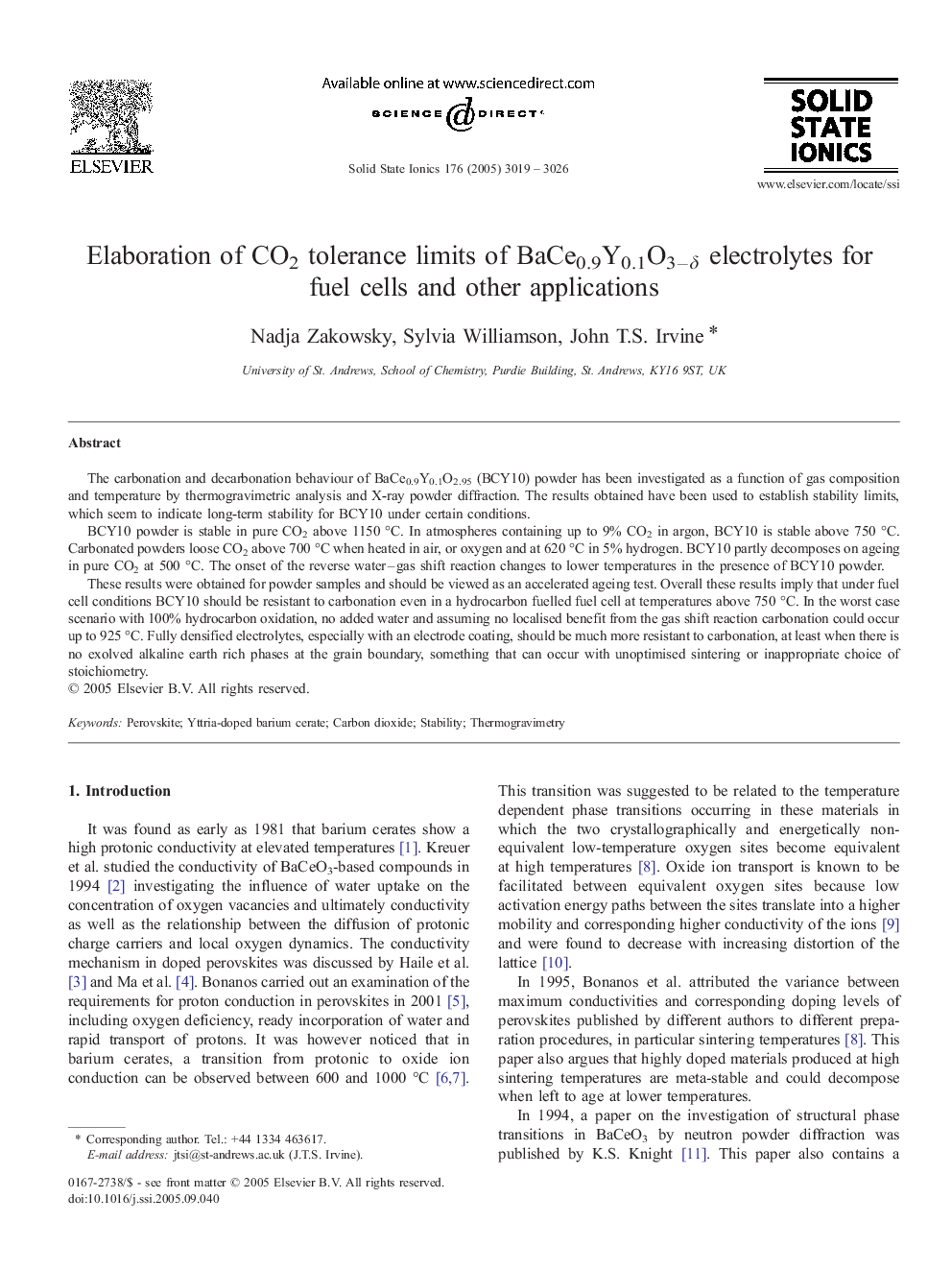| کد مقاله | کد نشریه | سال انتشار | مقاله انگلیسی | نسخه تمام متن |
|---|---|---|---|---|
| 1298507 | 1498413 | 2005 | 8 صفحه PDF | دانلود رایگان |

The carbonation and decarbonation behaviour of BaCe0.9Y0.1O2.95 (BCY10) powder has been investigated as a function of gas composition and temperature by thermogravimetric analysis and X-ray powder diffraction. The results obtained have been used to establish stability limits, which seem to indicate long-term stability for BCY10 under certain conditions.BCY10 powder is stable in pure CO2 above 1150 °C. In atmospheres containing up to 9% CO2 in argon, BCY10 is stable above 750 °C. Carbonated powders loose CO2 above 700 °C when heated in air, or oxygen and at 620 °C in 5% hydrogen. BCY10 partly decomposes on ageing in pure CO2 at 500 °C. The onset of the reverse water–gas shift reaction changes to lower temperatures in the presence of BCY10 powder.These results were obtained for powder samples and should be viewed as an accelerated ageing test. Overall these results imply that under fuel cell conditions BCY10 should be resistant to carbonation even in a hydrocarbon fuelled fuel cell at temperatures above 750 °C. In the worst case scenario with 100% hydrocarbon oxidation, no added water and assuming no localised benefit from the gas shift reaction carbonation could occur up to 925 °C. Fully densified electrolytes, especially with an electrode coating, should be much more resistant to carbonation, at least when there is no exolved alkaline earth rich phases at the grain boundary, something that can occur with unoptimised sintering or inappropriate choice of stoichiometry.
Journal: Solid State Ionics - Volume 176, Issues 39–40, December 2005, Pages 3019–3026